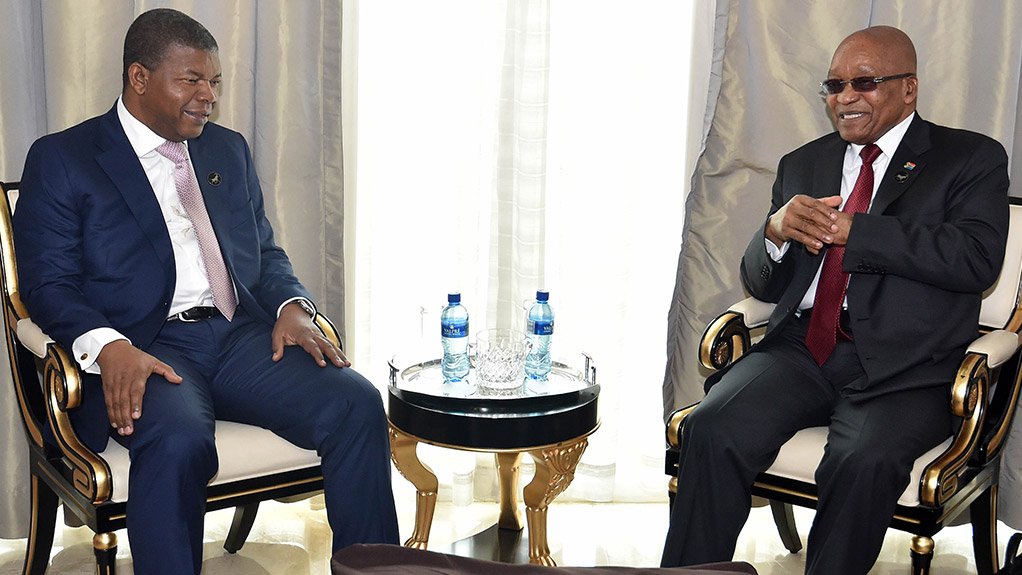Angola’s newly elected President Joao Lourenco will visit South Africa on Friday as part of efforts to build closer relations.
The leaders of the region’s two largest military powers are expected to discuss leadership succession plans for regional neighbours Zimbabwe, where long-time President Robert Mugabe finally stepped down this week, and the Democratic Republic of Congo (DRC).
Lourenco and South African President Jacob Zuma had already met earlier in the week at the South African Development Community (SADC) Organ Troika Summit in Angola, where the unfolding crisis in Zimbabwe was one of the top items on the agenda.
According to a report by AP, mutual interests include a calm post-Robert Mugabe transition in Zimbabwe and pressuring President Joseph Kabila of the DRC to set a firm date for new elections, as Angola, in particular, wants a stable neighbour that ceases providing Angolan rebels from the northern oil province of Cabinda a base from which to launch attacks.
Since winning the presidency from former Angolan President Jose Eduardo dos Santos, who ruled that country for nearly 38 years, the 63-year-old incumbent has taken steps to show that he is breaking away from the former government, despite both he and Dos Santos being members of the ruling party, the Popular Movement for the Liberation of Angola.
One of Lourenco’s first diplomatic changes was to appoint a new Angolan ambassador in South Africa in an endeavour to improve bilateral relations.
Other steps on the home front include firing dos Santos’ daughter, Isabel, who had chaired the powerful state-owned oil company Sonangol and is reported to be Africa’s wealthiest women, despite most of Angola’s population living in poverty.
Lourenco has also appointed a number of new ministers and replaced key security personnel.
Dos Santos, however, remains the leader of the ruling party and is still able to influence how Angola is run.
Angola’s soaring 29% inflation and 26% unemployment are challenges that the new president has to grapple with.
The south-west African country is Africa’s second-largest oil producer and a member of OPEC and is struggling to reduce its dependence on oil production, which accounts for almost all of its foreign exchange and trade, due to the economic shocks experienced when oil prices plummet.
To this end Lourenco has implemented an ambitious six-month plan that includes consolidating taxes, limiting public debt, improving productivity and attracting foreign direct investment.
EMAIL THIS ARTICLE SAVE THIS ARTICLE
To subscribe email subscriptions@creamermedia.co.za or click here
To advertise email advertising@creamermedia.co.za or click here











